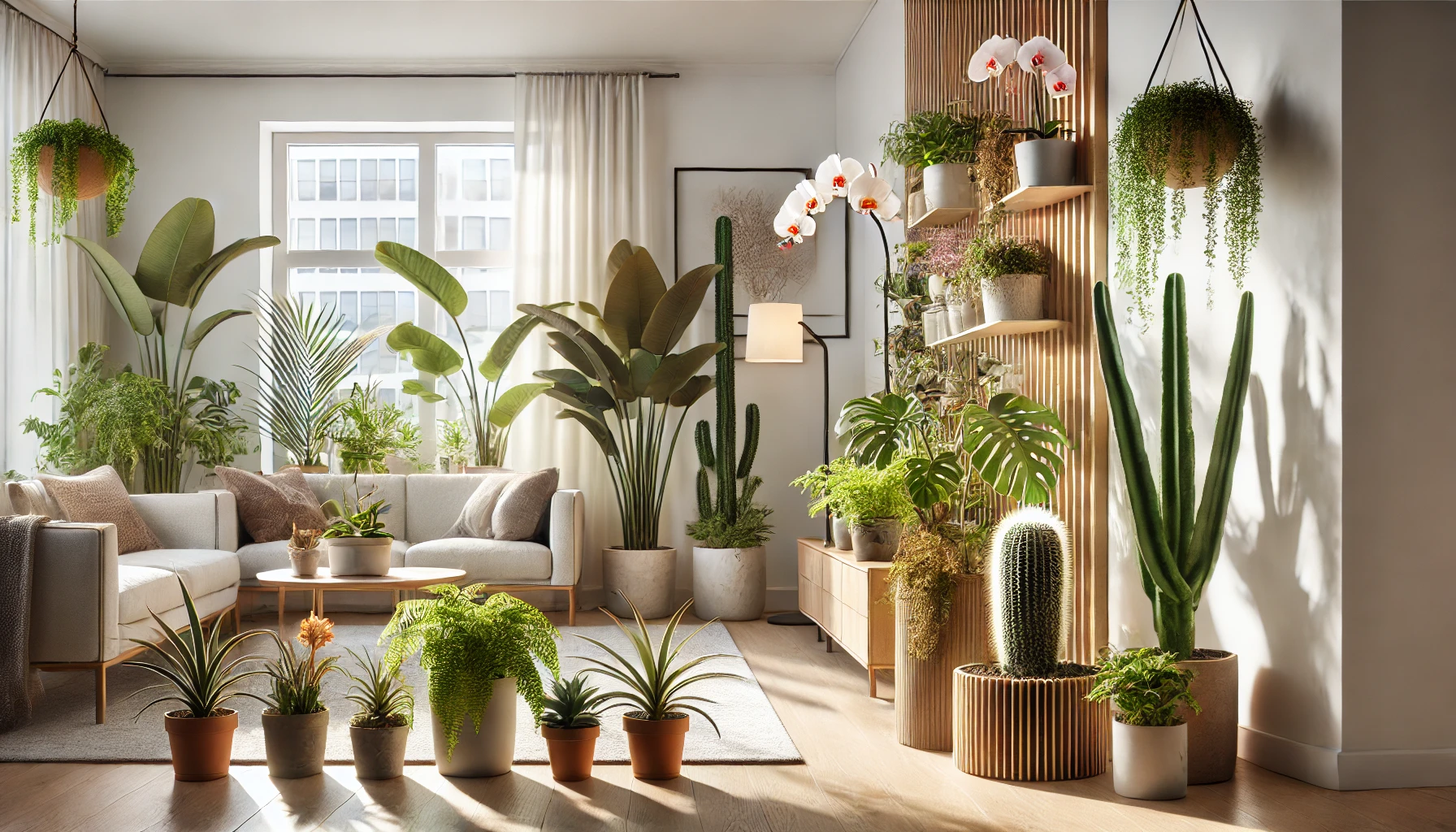Exotic plants are an excellent way to bring life and color into your apartment. With their unique appearance, they can transform any room into a vibrant, tropical oasis. However, before purchasing one, it’s important to understand the specific care needs of these plants. They often require special attention compared to more common houseplants.
In this article, we will cover what you need to know before buying an exotic plant, ensuring that it thrives in your home.
Understanding Exotic Plants and Their Needs
Exotic plants typically come from tropical, subtropical, or desert regions. These plants have specific care requirements that differ from those of native houseplants. Understanding their needs in terms of light, temperature, humidity, and water is essential.
Light Requirements
Exotic plants often thrive in bright, indirect sunlight. However, some, like succulents and cacti, need direct sunlight. Others, such as ferns, prefer low light conditions.
Before purchasing an exotic plant, assess the natural light available in your apartment. If your space lacks adequate light, you might need to use grow lights to meet your plant’s needs.
Temperature and Humidity
Exotic plants come from warm, humid climates. As such, they prefer temperatures between 60°F and 80°F (15°C to 27°C). Sudden temperature changes or drafts can cause stress and damage the plant.
Humidity is also important. Many exotic plants need high humidity levels, especially those from rainforests or tropical regions. If your apartment is dry, you can increase humidity by using a humidifier or placing plants together to create a humid microenvironment.
Watering Needs
Watering exotic plants can be tricky. Overwatering is a common mistake. These plants typically prefer to dry out between waterings, so it’s important not to let the soil stay too wet. Always check the moisture level in the soil before watering.
Some exotic plants, like cacti, need very little water, while others, such as tropical ferns, need more frequent watering. Research the specific plant’s needs to avoid underwatering or overwatering.
Choosing the Right Plant for Your Space
When selecting an exotic plant for your apartment, consider the space available. Some plants are large and need room to grow, while others are small and compact.
Size and Growth Rate
Exotic plants vary in size. Some species grow slowly, while others can expand rapidly. If you have limited space, opt for smaller plants or slow-growing varieties. Larger plants, while impressive, may outgrow their space quickly and require constant re-potting and attention.
Make sure the plant you choose fits the available space without overcrowding your apartment.
Potting and Containers
Proper potting is essential for the health of your exotic plant. Choose a pot with drainage holes to prevent water from accumulating at the bottom, which can lead to root rot. The size of the pot should also match the size of the plant.
If your plant grows rapidly, you may need to re-pot it every few years to accommodate its expanding roots.
Maintaining the Health of Exotic Plants
Once you’ve chosen the right plant, proper care is crucial to its long-term health. Regular maintenance, such as trimming dead leaves, checking for pests, and repotting when necessary, will keep your plant healthy and vibrant.
Pruning and Cleaning
Pruning is important for maintaining the shape and health of your exotic plant. Remove dead or yellowing leaves regularly to encourage new growth. Additionally, cleaning the leaves helps remove dust and debris, allowing the plant to breathe more easily.
If your plant is flowering, remove spent flowers to encourage new blooms.
Checking for Pests
Exotic plants are prone to certain pests, such as spider mites, aphids, and mealybugs. Regularly inspect your plant for signs of pests. If you find any, remove them promptly by wiping the leaves with a damp cloth or using a natural insecticidal soap.
Repotting
As your plant grows, it may outgrow its current pot. Repotting is necessary to ensure the plant has enough space for its roots to spread. Always choose a pot that is one size larger than the current one and ensure it has proper drainage.
Benefits of Having Exotic Plants in Your Apartment
Exotic plants are more than just visually appealing—they also offer several benefits to your living space.
Air Purification
Many exotic plants are excellent at purifying the air. They absorb carbon dioxide and release oxygen, improving the air quality in your apartment. Plants like snake plants, peace lilies, and spider plants are known for their air-purifying abilities.
Stress Reduction
Studies have shown that having plants in your home can reduce stress and improve overall well-being. The presence of greenery has a calming effect and can help reduce anxiety, making your home a more relaxing place to be.
Aesthetic Appeal
Exotic plants can enhance the aesthetic of any room. Whether you want to add a pop of color, create a tropical vibe, or bring nature indoors, these plants can help you achieve the look you want.
Final Thoughts
Buying an exotic plant for your apartment can be a rewarding experience. By choosing the right plant, understanding its care needs, and maintaining it properly, you can enjoy a thriving, beautiful plant that adds life and beauty to your home. Whether you’re a seasoned plant parent or a beginner, following these tips will help you make an informed decision and set you up for success.
